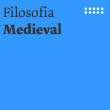Pedro de Barcelos e a monarquia castelhano-leonesa: estudo e edição da secção final inédita da Crónica Geral de Espanha de 1344
Director: Maria do Rosário FerreiraReference: EXPL/CPC-ELT/1300/2013
- Principal researcher: Maria do Rosário Ferreira
- Researchers: José Carlos Ribeiro Miranda; Filipe Alves Moreira; Maria Joana Gomes; Ana Sofia Laranjinha.
- Consultants: Georges Martin; Francisco Bautista; Hélène Thieulin-Pardo; Aengus Ward; Inés Fernández-Ordóñez; António Resende de Oliveira; Ricardo Pichel Gotérrez
- International board of advisers: http://www.fct.pt/apoios/projectos/consulta/aavaliar?iep=18596&idconcurso=217
- FCT overall rating: Excellent.
- FCT panel recommended funding: € 47.000.
- 2014-2015
Title: Pedro de Barcelos and the monarchy of Castile-León: study and edition of the final inedited section of the Crónica Geral de Espanha
Summary:
This project aims to study, edit and make available the final section of Crónica Geral de Espanha de 1344, a Portuguese historiographical text by count Pedro de Barcelos, son of king Dinis. This chronicle was critically edited and published by L. F. L. Cintra (1954-1990); nevertheless, its final section was not included in this edition. The textual transmission of Cr1344 (reformulated around 1400 and twice translated into Castilian) was bilingual and lacunar. These circumstances affected negatively the text’s dissemination.
No Portuguese testimony of the 1st redaction has survived, and the two extant Castilian ones (M, E – see mss. references in task1) are lacunar, so that the text is lost from the reign of Alfonso VII on. As for the 2nd redaction, none of the Portuguese mss. L and P (15th c.) represents it adequately after the death of Fernando III: L features chapters of the Crónica de Alfonso X; P further continues the history of the kings of Castile and León with a text of its own. Castilian mss. U, Q, S, N, deriving from a highest point of textual transmission are the only that preserve the integrity of Cr1344 final section. In those mss., the Castilian dynasty is taken through the reigns of Alfonso X, Sancho IV, Fernando IV and Alfonso XI until the battle of Salado (1340).
Cintra’s critical ed. targeted the Portuguese text of the 2nd redaction, based on ms. L and corrected with P, U, Q, M. After the reign of Fernando III, the editor choice was to terminate his edition of Cr1344 and present as an annex the defective final sections of ms. L and P. Therefore, the authorized account of the history of the kings of Castile and Léon from Alfonso X to Alphonso XI according to the 2nd redaction of Cr1344 remains inedited. Except for a few philologists, this is a text unknown to the scientific community. It is, however, an important piece in the complex interweaving of Portuguese and Castilian medieval historiographical texts that in recent years has drawn the attention of international scholars. It stands out by its historical and cultural significance. It was written during the troublesome decade of 1340 by the most preeminent Portuguese nobleman, with notorious connections with mighty Castilian aristocratic sectors. Since it focused on the recent past, from Alfonso X to Alfonso XI, contemporary with the author, it provides a privileged vision of the relations among peninsular kingdoms and between aristocracy and monarchy at a complex turning point of Iberian History that made obsolete a whole set of medieval values and from which modern states emerged. It is expected that it will elucidate aspects of the sought for social balance and of the assayed political trends and strategies. Its link with the battle of Salado –a key element in count of Barcelos writing and a decisive event for the conceptualization and pragmatics of the interaction with the Moorish world– is of relevance to the area of intercultural studies.
The textual and cultural issues arisen by this text demand expertise in several technical and scientific domains. They encompass comparative, philological and hermeneutical methodologies, essential for the study and edition of historiographical medieval texts; as well as a thorough knowledge of 14th century Iberian historical and cultural context. The project gathers a team of PHD philologists who are proven experts on medieval Iberian historiography, with a large number of mainly international publications on the study and edition of texts in vernacular. They either lead or are members of national or international research groups (SMELPS/IF; AILP/GDRE 671 CNRS; BITAGAP) that focus on that specific field. The doctoral student in the team conducts her thesis reseach in the same field. The IR’s research focus mainly on Pedro de Barcelos historiographical writing. The team has worked together for years in the reseach group SMELPS/IF. The Project thus gathers the required conditions to achieve its goals, since it relies on a highly qualified and very motivated team of experts; uses an efficient networking methodology; clearly identifies its tasks and objectives; and targets a text compatible with the time period foreseen for an exploratory project. The Project’s most visible result will be the publication, on-line and on paper, of the critical edition of an inedited text that is a part of Portuguese cultural heritage and also of a monographic volume of studies, proposed to an international publisher. This will bring innovative perspectives to the study of intertextuality between the cultural milieus of Portugal and Castille-Léon, and will contribute to further enlarge the knowledge of historiography and its context of production in Medieval Iberia. The dissemination, at national and international level, of the scientific results progressively achieved by the team will be accomplished through a specific webpage, the participation in international meetings and the publication of corresponding papers.
Consultores no Projeto:
Aengus Ward (Universidade de Birmingham)
Inés Fernández-Ordóñez (Universidade Autónoma de Madrid)
António Resende de Oliveira (Universidade de Coimbra)
Ricardo Pichel Gotérrez (Universidade de Santiago de Compostela)
Francisco Bautista (Universidade de Salamanca)
Georges Martin (Universidade de Paris - Sorbonne)
Hélène Thieulin-Pardo (Universidade de Paris - Sorbonne)
 Membros que participam neste projecto
Membros que participam neste projecto
Página actualizada a 30-10-2014 @ 10:10








